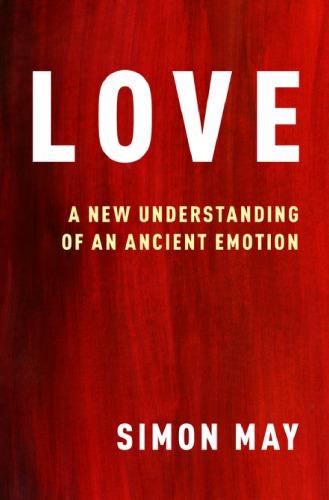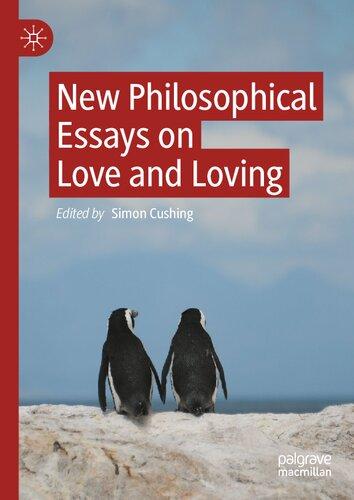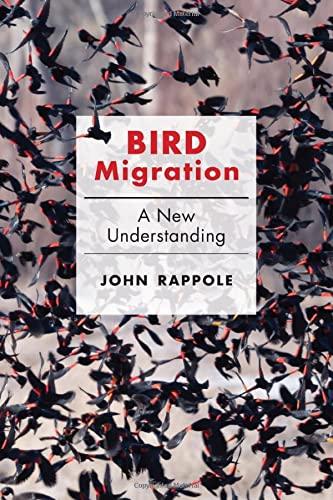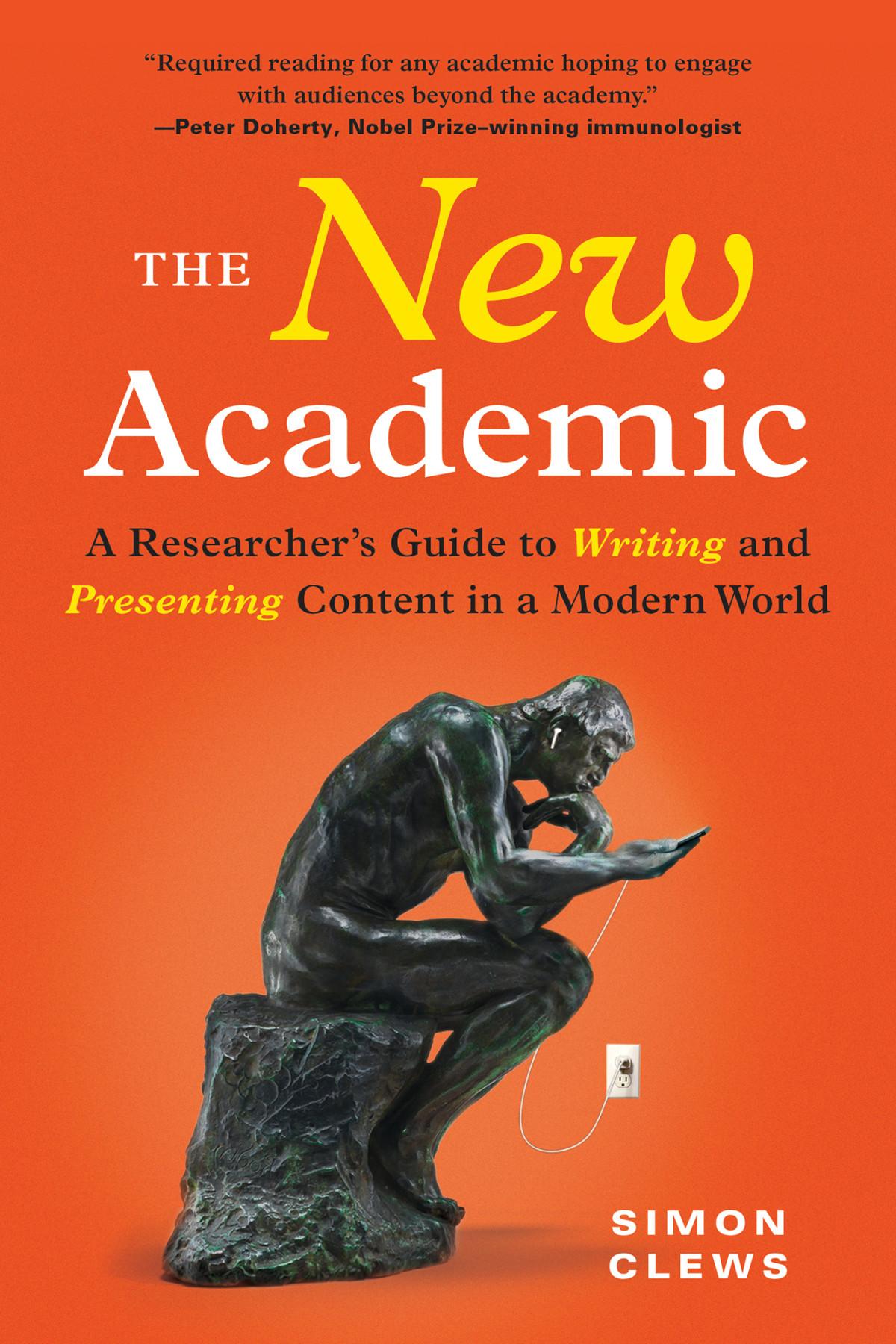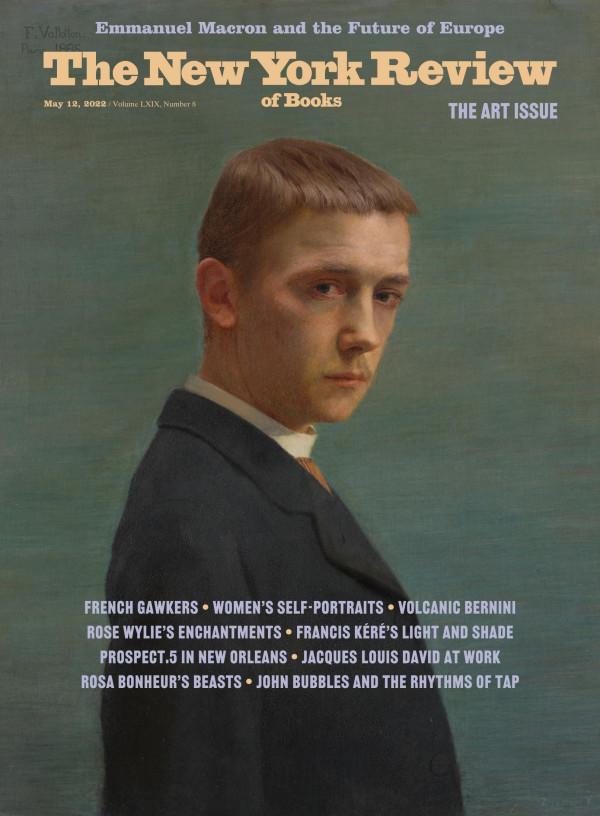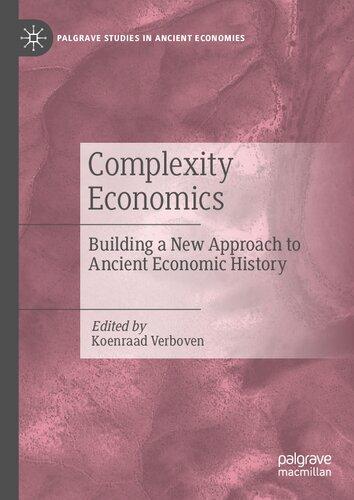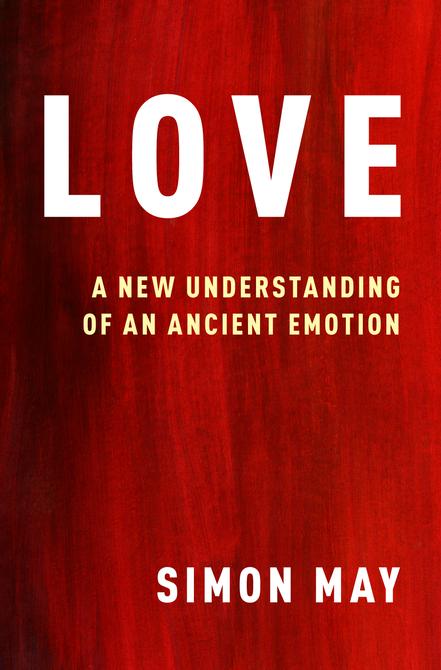1
Oxford University Press is a department of the University of Oxford. It furthers the University’s objective of excellence in research, scholarship, and education by publishing worldwide. Oxford is a registered trade mark of Oxford University Press in the UK and certain other countries.
Published in the United States of America by Oxford University Press 198 Madison Avenue, New York, NY 10016, United States of America.
© Simon May 2019
All rights reserved. No part of this publication may be reproduced, stored in a retrieval system, or transmitted, in any form or by any means, without the prior permission in writing of Oxford University Press, or as expressly permitted by law, by license, or under terms agreed with the appropriate reproduction rights organization. Inquiries concerning reproduction outside the scope of the above should be sent to the Rights Department, Oxford University Press, at the address above.
You must not circulate this work in any other form and you must impose this same condition on any acquirer.
CIP data is on file at the Library of Congress
ISBN 978–0–19–088483–3
9 8 7 6 5 4 3 2 1
Printed by Sheridan Books, Inc., United States of America
In memory of my parents, with gratitude.
Nearly all life’s misfortunes come from our false notions about the things that befall us.
Stendhal 1
Acknowledgments ix Introduction xi
PART I } Dead Ends: Why We Need a New Understanding of Love
1. The Neglected Question: What Is Love’s Specific Aim? 3
2. Back to the Future: Secularizing Divine Agape 11
3. The Six Major Conceptions of Love in Western History: A Summary 23
4. Why We Need a New Conception of Love 32
PART II } Love: Toward a New Understanding
5. Love and the Promise of Rootedness 39
6. What Is Ontological Rootedness? 44
7. God as Paradigm of a Loved One—But Not of a Lover 49
8. Love as Recognition of Lineage 53
9. Love as Recognition of an Ethical Home 61
10. Love as Recognition of Power 63
11. Love and the Call to Existence 66
12. Relationship 69
13. Fear: The Price of Love 75
14. Destructiveness 78
15. Why Love Isn’t the Same as Benevolence 82
16. What Divine Violence Teaches Us about Love 86
17. Self-Interest as a Source of Self-Giving 93
18. Exile as Love’s Inspiration 99
19. Why Some Epochs (and People) Value Love More Than Others 104
20. The Languages of Love 110
21. The Primacy of Loving over Being Loved 115
22. Attentiveness: Love’s Supreme Virtue 118
23. Love and Death 125
24. “Overshooting” the Loved One: Love’s Impersonal Dimension 128
25. Can We Love Ourselves? 133
PART III } Narratives of Love as Rootedness
26. The Bible: Love as a Discovery of Home 143
27. The Odyssey: Love as a Recovery of Home 152
PART IV } How Is Love Related to Beauty, Sex, and Goodness?
28. Why Beauty Is Not the Ground of Love 165
29. How Important Is Sex to Love? 169
30. The Real Relation between Love and Beauty 174
31. Can We Love the Ugly? 180
32. Can We Love Evil? 184
PART V } The Child as the New Supreme Object of Love
33. Why Parental Love Is Coming to Trump Romantic Love 197
34. The Conservatism of Romantic Love 221
35. Why Isn’t Friendship the New Archetypal Love? 228
36. Conclusion: The Child as the First Truly Modern Archetypal Object of Love 230
Notes 239 Bibliography 267 Index 275
ACKNOWLEDGMENTS
I am deeply grateful to the many colleagues with whom I have had rich and stimulating exchanges about topics in this book, most of whom commented on various chapters. I thank in particular Edward Adams, Rachel Adelman, Clare Carlisle, John Cottingham, Armand D’Angour, Fiona Ellis, William Fitzgerald, Jessica Frazier, Stephen Frosch, Sebastian Gardner, Ken Gemes, Anthony Giddens, Andrew Godfrey, Sacha Golob, Lenn Goodman, Beatrice Han-Pile, Edward Harcourt, Colin Heywood, Edward Howells, Andrew Huddleston, Eva Illouz, Luce Irigaray, Robert Jackson, Susan James, Christopher Janaway, Menachem Kellner, Sharon Krishek, David Lancy, Antony Makrinos, David McPherson, Heather Montgomery, Alexander Nehamas, Joshua Neoh, Oliver O’Donovan, George Pattison, Bernard Reginster, Margaret Rustin, Christopher Ryan, Joseph Rykwert, Daniel Rynhold, Roger Scruton, Kenneth Seeskin, Michael Silk, Tom Stern, Alison Stone, Gudrun von Tevenar, John Took, Jeremiah Unterman, Dimitrios Vasilakis, Robert Vilain, Keith Ward, Sarah Young, Nick Zangwill, Semir Zeki, and Viviana Zelizer. Clare Carlisle, John Cottingham, Sebastian Gardner, Ken Gemes, Sacha Golob, Beatrice Han-Pile, Edward Harcourt, Andrew Huddleston, David McPherson, George Pattison, Daniel Rynhold, Roger Scruton, Kenneth Seeskin, Gudrun von Tevenar, and Keith Ward reviewed the entire manuscript; and it is impossible to express adequate gratitude for their extraordinary generosity with their time and expertise.
I am indebted in so many ways to Ansia Naidoo, who has been unstinting in her encouragement.
My research assistant, Sarah Pawlett-Jackson, checked all the footnotes and references with unwavering attention to detail, compiled the bibliography, and made numerous valuable suggestions. I cannot thank her enough for her meticulous work.
Finally, I extend my warm gratitude to my agent in New York, Peter Bernstein; to my superb editor at Oxford University Press USA, Peter Ohlin, for his advice, support, and confidence in this project; to Christina Nisha Paul for overseeing the production of the book with such efficiency; to my copy editors Karen Jameson and Sangeetha Vishwanathan; and to Sylvia Cannizzaro for her careful proofreading and fruitful suggestions.
INTRODUCTION
What is love?
In particular, what is love’s aim and motivation? What is the good that love, uniquely, realizes or constitutes?
Despite our immense focus on love, such questions about its ultimate purpose, motivation, and value are seldom answered in a way that can account for love’s tremendous specificity: in what it seeks, in what inspires it, in the kinds of relationships it nurtures, in its choice of loved ones. For the reality is that, of all the people and things and vocations we value or desire, we love very few. And although love can be expressed in many ways—in passionate romance, benevolence, attachment, devotion, intimacy, valuing, caring, compassion, sexual and reproductive desire, or some combination of these—it cannot be equated to any of these things, and not all instances of them are animated by love. If “love” were really just another name for one or more of them, we could dispense with the word altogether. We could call benevolence “benevolence,” and sexual intimacy “sexual intimacy.” Why call them “loving”?
The remarkable silence on these questions concerning love’s specificity is reflected in the fact that much, perhaps most, writing on love—whether by philosophers, or sociologists, or psychologists—is preoccupied instead with the dispositions, behavior, virtues, and social conditions that make for success and inclusiveness in relationships of love, and especially in romantic love. These are vital questions, but treatments of them all too often fail to indicate, more than cursorily, what they take love—the subject of their investigations—to be; or indeed why they assume they are studying love at all, as distinct from, for example, instances of sexual attraction or altruism or esteem that have nothing to do with love.
Only an understanding of love that does justice to the specificity of its aim and motivation—its ground—as well as to the very particular good that it realizes or constitutes can tell us in virtue of what so many diverse yearnings, attachments, dispositions, and attractions can be called “loving.” When we speak of loving friends, children, God, parents, spouses, romantic partners—or art, nature, a country, or an ideal—or when we designate altruism, erotic desire, devotion, and valuing as instances of love, only such an understanding of the nature of love can explain in virtue of what all these uses of the word “love” and all these determinate manifestations of the love relationship resemble each other.
Why, then, is the specificity of love’s ground and good so neglected today?
The reason, I will suggest, is that, consciously or unconsciously, we increasingly rely on human love to supply the consolations of the God in whom so many no longer believe—or, even if they do, no longer necessarily hold to be the source or catalyst of all genuine love. And, to that extent, we resist asking fundamental questions about love in a way that would challenge this dominant ideal of it. In particular, human love—of almost any type, from romantic to parental—is widely expected to be unconditional, disinterested, enduring, and affirming of the loved one in just the all-encompassing manner (of remarkably recent origin) in which God is said to love.
This secularized form of divine “agape,” with its four characteristic features, has now become a dominant ideology of love: one of the most influential ways of understanding human love and the expectations we have of it. As we will see, great effort is directed, by philosophers in particular, at better explaining, justifying, and fulfilling this particular ideology of love, which dates from no further back than the mid-nineteenth century and which demands from human love what was once ascribed only to divine love.
To be clear: the problem here isn’t to attribute supreme value to love. It isn’t to regard love as sacred—and thus to see love in a religious way, in the sense, say, of Paul Tillich’s view that religious faith is “the state of being ultimately concerned.”2 For to love—even more than to be loved—belongs to the most fundamental conditions of a well-lived life, though, I will argue, for different reasons to those given hitherto.
The problem is rather to see any of those four features of divine agape as intrinsic to genuine human love—and so as entirely within the scope of human agency—though each can coherently be ascribed only to how God is said to love. For such features constitute an ideal for human love that is unintelligible unless buttressed by a theology—and in particular a theology of grace, as articulated by thinkers from Paul to Augustine to Thomas Aquinas to Luther to Kierkegaard and beyond—in which they are taken to be the gifts of a God who, to a greater or lesser degree, is their source. To strip them of that theology and instead to see any of them—for example, unconditional love, in the sense of love that is ungrounded in, or unmotivated by, any qualities of the loved one, but is rather spontaneously bestowed—as expressing fully sovereign human powers is hubris, which can issue only in disappointment. To conceive love in such terms is, therefore, to undermine the very thing we claim to value.
This is why the overriding purpose of this book is to develop a new understanding of love—an alternative way of characterizing that unique structure of experience common to love’s many expressions, whatever objects it takes and whatever relationships it fosters—that, I suggest, can better account for its distinctive aim and motivation; an understanding of love that can, therefore, explain why we love only the particular people and things that we do, indeed why we love at all.
In Love: A History, I surveyed what I take to be the principal ways in which, over the last two and a half millennia, love has been conceived in those parts of the world that are heir to the confluence of biblical and ancient Greek thought—parts of the world that today centrally constitute the West (and that I will refer to as “the West” here, though they extend beyond Europe and North America). I then introduced, though only in outline, an alternative way of understanding love, another direction in which we might look to identify the nature of love, namely as the joy inspired by whomever or whatever we experience as rooting, or as promising to root, our life.3
This joy can be rapturous or quiet; unqualified or admixed with pain, hate, jealousy, and even disgust. It is born of self-interest: to be at home in a world that we supremely value, which I take to be among the greatest of all goods and of all human needs. It sets us on a trajectory of seeking to attain such rootedness in and through a relationship with the loved one. And it can motivate the most devoted self-giving of which humans are capable.
On this picture, therefore, love is grounded in a promise of “ontological rootedness,” a promise of home in the world—or, as we will see, in a very particular world that we supremely value—toward the attainment of which our lives become powerfully oriented, though the promise can never be perfectly fulfilled, for no final state of groundedness is available in a human life. Unlike the immensely influential tradition descending from Plato and Aristotle, I do not see beauty or goodness or virtue as the ground of love; rather, we will almost certainly come to see beauty or goodness in an object that holds out such a promise.
In this book, I have four new aims: to address the question “What is love?” by developing in detail my conception of love as our joyful response to a promise of ontological rootedness; to illustrate that conception with two “case studies” drawn from foundational myths of the Western world—Abraham’s call by God to Canaan in the Bible’s Book of Genesis and Odysseus’s return to Ithaca in Homer’s Odyssey both of which may be interpreted as connecting love with the search for, or promise of, home in a world that the lover supremely values; to use it to investigate afresh such ancient questions as the relationship between love and beauty, sex, virtue, fear, and destructiveness; and to argue that, at least in Europe and North America, the privileged object of love is undergoing a historical change, from the romantic partner to the child.
In Part I, I set the scene by picking up on and developing a major theme of Love: A History, namely that what has today become a dominant conception of genuine love is incoherent. For example, by insisting that genuine love is unconditional—that it is in no way grounded in qualities of our loved ones— this conception of love cannot possibly answer the question “why do we love just these people and not others?” On this account, if a loved one were to ask us why we love her we would be forced to reply that nothing about her grounds our love for her: that, to this extent, we don’t love her for her intrinsic
or unique qualities. (And we would need, moreover, to concede that our love might have been bestowed, just as mysteriously, on someone else, or on an unknowable number of other people.)
I then summarize what I take to be the six principal ways of understanding love—the six basic conceptions of love—that have emerged in Western history since biblical and ancient Greek thought, all of which appear in my survey in Love: A History and all of which do propose grounds for love and so offer an answer to this “why” question. Yet can any of these, I ask, adequately account for the selectivity of passionate human love, whether for friends, children, spouses, works of art, landscapes, God, or any of its other many possible objects and expressions? (Even love for the monotheistic God is experienced as selective in that it explicitly rejects all other idols; for genuinely to love this God is to take oneself to be unable to love any others.)
In Part II, I ask what it is to glimpse a promise of ontological rootedness in those we love. This is the heart of the book; for my principal intent is to add to the accumulated store of conceptions of love a new one, which I propose as a way of capturing the very specific intentions and needs that, taken together, are unique to love in its manifold expressions—and so of distinguishing attachments and valuings and desires and virtues that are loving from those that are not. And although my alternative way of characterizing love’s master aim—namely to secure a promise of ontological rootedness that it glimpses in another—is new, it can nonetheless accommodate certain motifs to be found within the six traditional conceptions, such as the motif of “return” that we read about from Plato to Augustine to Freud and Proust, or the notion of ethical compatibility articulated by theorists of friendship love from Aristotle to Montaigne and beyond. For, in briefest summary, to glimpse a promise of ontological rootedness in a loved one is to experience them in four ways (which, in any given case of love, may each obtain to very different degrees).4
First, we discover in them a source of life, a very particular lineage or heritage or origin (which needn’t be our own), with whose sensibility we deeply identify.
Second, we have the sense that they offer us an ethical home: that they embody supreme values and virtues that echo our own, or that we would like to make our own, and that we believe we can attain only in and through them.
Third, we feel that they possess decisive power to deepen our sense of existing—power to intensify the reality and vitality, and therefore the validity, of our existence, as we experience it. This is the power—a power that at the limit feels like one of life or death—by which love is always inspired and to which it is unfailingly attracted—one of the reasons why hostages can fall in love with their captors.
And fourth, we experience them as calling us to our so far unlived life or destiny.
One we love offers such a promise of ontological rootedness through who they are for us—through their presence-to-us—and not necessarily in anything they explicitly say or do to us, including how they esteem or value or recognize us. Indeed, their very presence will fortify our sense of existing, as I will explain in Part II, even if they set out to attack our self-esteem.
Though love can be expressed in very diverse relationships and can take very different objects, I will argue that all love, such as for a romantic partner, a child, a parent, a friend, a sibling, or God, has a similar structure. (But because love is a relation to such a grounding presence, which promises us a home—a horizon of possibilities; a source of life—that we cannot find within the compass of our own self, however multiple, sprawling, and fluid we take that self to be, there is no such thing as self-love. We can esteem, recognize, take pride in ourselves and our values, virtues, and accomplishments—indeed, much historical discussion about self-love has, in reality, been about such affirming dispositions; but we cannot, strictly speaking, love ourselves—for love, in the very structure of its experience, is directed at one who breaks into our life from the outside.)
As we will see, these four experiences, taken together, are so specific—in other words, the kinds of qualities of the loved one that arouse our love and the deep needs that they meet in us as lovers are so particular—that we will be fortunate to find, throughout our lives, just one or a few people in whom we discover a powerful promise of ontological rootedness. And so, when we do, we will tend to experience them as irreplaceable, especially after a history of relationship—of interwoven lives, mutual devotion, and shared memories— and the intense attachment it engenders. Such irreplaceability increasingly focuses us on, and engages us with, the larger individuality of loved ones—a focus that causes the specific promise of ontological rootedness that grounds our love correspondingly to retreat into the background of our awareness, though it is no less powerfully at work there than it was when that love was born, though there is no terminus at which the promise is fully and finally attained, and though it never ceases to be a motivating condition of our love.
z
This rootedness or home that grounds love in my conception of it is nothing like a domestic cocoon that shuts out the world and in particular the public sphere. On the contrary. Instead of offering a realm of fixity, whether conceived as worldly (as in some conceptions of the romantic union) or as otherworldly (such as the quies, or eternal rest, that Augustine sees as the consummation of love for God), the loved one—and so love—creates a potentially unsettling place where the lover is called to their destiny: the sort of place that, as we will see, God creates for Abraham and his descendants.
Such a home is, therefore, not akin to a protected sphere of childrearing that we abandon in early adulthood, but is rather a habitat that we might spend our
whole life seeking to discover, reach, and make our own. Thus, I characterize relationships of love in terms of inhabiting, rather than, as more traditionally, in terms of either possessing or submitting (where possession and submission are often considered mutually exclusive—wrongly, for real possession in love is not appropriation but rather surrender in which the loved one can flood their lover with who they are: with the force of their presence). Indeed, to inhabit a home does not assume sovereignty either over it or over the loved one who has promised it.
In Part III, I then suggest that my conception of love is strikingly exemplified by two archetypal narratives of love, each to be found in one of the West’s founding texts: first, the covenant between God and Abraham in the Bible, in which Abraham learns that his true home and destiny are not where he was born or now lives, nor where his kin are, nor in his father’s house, but rather far away in Canaan; and, second, Odysseus’s journey home from Troy to Ithaca, recounted in Homer’s Odyssey. In the first case, home is an entirely new territory, which is distant from Abraham’s habitual or ancestral habitat, and which is where his true destiny is to be enacted. In the second case, the journey takes the lover back to a fresh encounter and renewed relationship with the place where he started—a return to the beloved that, as we will see, is a way of going forward with one’s love and, to that extent, with one’s life. In both cases, love involves a displacement—and in the case of Abraham, a radical displacement—from the status quo ante and is nourished by a complex experience of exile. Such experience of displacement and exile—of being remote from one’s true home, which can be attained only with the greatest dedication—is, I argue, fundamental to love’s motivation and development: to why we love and to the effects that love can have on us.
Both these exemplifications of love as our joyful response to a promise of ontological rootedness underline how love is structured by notions such as “promise,” “trajectory,” “search” for home, “hope,” “journey,” “attentiveness,” “striving” for relationship, “overcoming” exile—all of them speaking of, and freighted with, love’s rich intentionality, the object of which is the loved one experienced in the four ways just mentioned; and all of them pointing to a key reality of love: that it has no terminus, no point at which its searching is complete (let alone one that could be specified in advance). For there is no perfect groundedness, no state of ontological invulnerability available to us—and not only, as we will see, because there is none that contingency cannot sabotage.
In Part IV, I go on to use this idea of love as grounded in a promise of ontological rootedness to investigate the relationship between love and beauty, sex, and goodness; and I claim that my way of understanding love helps account for its remarkable specificity: for example, for the fact that we do not love as many people as we find beautiful or good or sexually desirable or reproductively suitable; or that we can encounter people (and things) we find neither beautiful nor good nor attractive, and yet powerfully love them. In
doing so, I propose that though sex is one of the main expressions or languages of romantic love, it is never the ultimate ground of love; and that, contra the immensely influential view articulated by Plato and many after him, nor is beauty (or creation in beauty). Instead, beauty and sex rivet us to another so powerfully that we are better able to see their promise of ontological rootedness, if it exists.
If this is so, then beauty has a twofold relation to love: it draws our attention toward others, so that we are more likely to notice a promise of rootedness; and it is also a consequence of seeing the promise—a consequence of loving— in that we will attribute beauty to those who root us. As a result, in coming to see what roots us as beautiful, love is able to see beauty in another whom it also finds ugly. Indeed, ugliness—like evil—can be loved, without in any way being imaginatively transformed into beauty, if it speaks of a world in which we seek to be at home.
Finally, in Part V, I suggest that what we in the Western world, or at least in much of Europe and North America, take to be the supreme object of love is undergoing a historic change. For Plato’s Diotima it was absolute and eternal beauty—or creation of, and in, beauty; for Aristotle it was the perfect friend; for Plotinus it was the “One,” the source of everything; for the Christian worldview that dominated for many centuries it was God; for the troubadours of medieval Europe it was the (usually unattainable) Lady, seen as a repository of virtue; for Spinoza it was nature considered as a whole; from the late eighteenth century it became the romantic-erotic partner—or, more rarely, nature or art; for psychoanalytic thinking it is the parent, or rather some internal representation of the parent; but now it is coming to be the child.
In other words, romantic love is gradually giving way to parental love as the archetypal love: namely the love without which one’s life cannot be deemed to be complete or truly flourishing; the love that traces, or points to, the domain of the sacred. As a result, to violate the child—or the parent–child bond—is now the ultimate sacrilege, the contemporary equivalent of desecrating the divine.
In suggesting that the child is becoming the supreme object of love, I am in no way implying that in previous ages parents didn’t love or protect their children, or accord them intrinsic rather than merely instrumental value. Many, of course, did, indeed fiercely so; and evidence for this is to be found all the way back to biblical and classical sources. Still less am I proposing that the elevation of the child to the archetypal object of love means that no parents are now neglectful, resentful, violent, or otherwise abusive toward their children. Clearly some are. Ideals inevitably draw attention to the degree to which they are betrayed—just as, in the centuries when God was unquestionably taken to be the supreme object of love, believers surely took the divine name in vain again and again.
So why, in our era, might the child be elevated to the supreme object of love?
Not, I will argue, because we are seeking immortality in a world that has ceased to believe in an afterlife. Nor because we crave a lost innocence. Nor because of a new fertility cult. Nor, indeed, because the drastic decline in infant mortality has made it “safe” for parents to become lovingly attached to their children. Rather this development is the result of a concatenation of typically modern impulses that have slowly taken powerful root since the late eighteenth century. (And so we might expect it to be most marked in those countries and social groups in which such impulses are strongest.)
Among these impulses is the desire to locate the sacred in the everyday world, instead of in transcendence of it, such as in God or in a romantic union that is taken to abolish the distinct individuality of the lovers; the war on risk and suffering that marks our age, a war in which the security of the child has become totemic; the unprecedented degree to which childhood has come to be seen as the key to a flourishing life; the value placed on individual autonomy, to which love for the child is (pace harassed parents!) far more attuned than is, say, romantic love; and a turn away from the belief that love can have a final goal, such as union with the loved one, or be marked by an event that “consummates” it, in the sense that it could have in traditional conceptions of love for God or the romantic partner (a development that is one symptom of the long struggle to abandon teleological ways of thinking).
Though it is far too early to tell whether the gathering supremacy of parental love will effect a revolution in the empowerment of women in the realm of love and perhaps, as a result, more widely—it could, I will argue, be both a step forward and a step back—it is the first archetypal love that genuinely reflects what Nietzsche called “the death of God”: the first that is no longer marked even by shadows of the divine.
PART } I
Dead Ends
WHY WE NEED A NEW UNDERSTANDING OF LOVE
The Neglected Question : What Is Love’s Specific Aim?
Few, if any, ages can have been more preoccupied with love than ours is.
Enormous effort is devoted by psychologists, sociologists, anthropologists, artists, novelists, filmmakers, philosophers, and psychoanalysts, among others, to investigating the nature of love and especially to characterizing those virtues, behaviors, and personal histories that mark genuine love and promote its flourishing, as well as social trends, technologies, and therapies that help and hinder it. Neurobiologists give us fascinating insight into the neural networks, neurochemistry, and brain centers that are activated when we say we love. Evolutionary biologists speculate on the reproductive and social purposes for which love—and its virtues, notably altruism—might have evolved.
Above all, there is our tremendous focus on understanding the ways in which romantic love can unfold; on how to succeed in relationships through the right skills of listening, compromising, and connecting; on whether love works best inside marriage or outside, or indeed in polyamorous relationships; on why we are sexually attracted to some people and not to others; on whether Internet dating is debasing our relationships into a market for quick satisfaction or, on the contrary, multiplying the chances of finding the right person; and on how love is shaped by childhood experience and especially by the template of our relationships to mother and father.
And yet at the core of this great conversation there is, in our time and unlike in most previous periods of Western thought, near silence on whether existing conceptions of love adequately address the single most fundamental question about love: What is its specific ground and aim? And so: What is peculiar to our experience of love as distinct from how we experience any other relationship of devotion, intimacy, attachment, benevolence, affirmation, respect, valuing, caring, or sexual intoxication that takes us out of ourselves into
the other person? What is the difference between altruism when it expresses love and when it expresses a virtue of character? What is the nature of sexual intoxication when it involves love, and when it doesn’t? How do we experience what we most deeply care about or wholeheartedly value when we love it—say, when we love our child—and, by contrast, when would it not make (the same kind of) sense to call our devotion “loving”—say, our devotion to our health? Indeed, why do we love at all?
To say, as the philosopher Robert Solomon does, that “Love is the concentration and the intensive focus of mutual definition on a single individual, subjecting virtually every personal aspect of one’s self to this process”1 is not to answer the question. For why concentrate on that individual? And doesn’t the same definition apply to obsessive envy or hatred, in which case it tells us little or nothing about the specific nature of love?
The same is true of Robert Nozick when he says that what is common to all love is that another person’s well-being becomes “tied up” with yours: indeed, that his or her well-being “is your own.”2 Which is very true—and a point made by many philosophers of love including, most powerfully perhaps, Aristotle and Montaigne; but why does just that other person’s (or thing’s) well-being become an extension of yours? So, too, when the sociologist Eva Illouz rightly says that “to love is to single out one person among other possibilities,”3 or the psychoanalyst Erich Fromm equally validly sees love as striving for “the overcoming of human separateness,”4 they both beg the question of why we love one person rather than another—whether the love in question is romantic, parental, filial, or that of friendship. And neither picks out love in particular: Illouz’s conception of love is compatible with purely sexual attraction; while Fromm’s applies just as well to a variety of personal attachments or social bonds structured by the desire for recognition, status, and companionship.
Nor is the question about love’s specificity addressed by thinking of love as tantamount to compassion, as Schopenhauer does when he says that all genuine love is compassion—“Alle Liebe . . . ist Mitleid.”5 For we can love those for whom we don’t have compassion (for example, God), and we can have compassion for those we don’t love (the injured stranger). Moreover, though we can of course be intensely compassionate to those we most love—romantic partners, close friends, our parents, our children—compassion hardly exhausts the nature, aim, and motivation of such relationships.
Nor, too, is love’s specificity captured by David Hume’s very different claim that “love and esteem are at the bottom the same passions”;6 for we surely love fewer people than we esteem. And, though we esteem everyone and everything we love, esteem is not the animating heart of the experience of love, any more than compassion is. It doesn’t do justice to the richness and vitality of a great love, say for our children, our spouse, a life friend, or God.
Nor do we gain much insight into love’s ground by seeking to characterize the virtues and behaviors that mark genuine love, or by asking why relationships succeed or fail. To say that the key to successful relationships is generosity and trust and patience and gratitude and admiration and respect and realistic expectations and everything that fosters them is surely true, but it doesn’t explain what animates love in the first place; why we love, and so care for, just the people that we do; what motivates two people to make their relationship work; what induces each of them to listen, share, recognize, care, connect, give, empathize.
The degree to which couples evince such qualities might, as the psychologist John Gottman claims,7 enable us to predict the longevity of their partnerships, but this sidesteps all those prior questions about love’s ground and distinctiveness that I just raised. In particular: What is love’s aim really, and so what should even count as “success”? And why do we love only some of those who are kind and generous to us, or toward whom we are kind and generous? Gottman tells us how to make “love” endure but he says nothing about what it is that we are trying to make endure. He is eloquent on the means but silent on the end.
Indeed, those same qualities are also crucial to relationships that are not centrally about love: relationships, for example, that are purely erotic, or companionate, or protective, or even professional and civic. Generosity and kindness, trust and listening, recognition and empathy, gratitude and admiration, sharing the joys and sadnesses of the other, exulting in their successes and consoling their failures—all such qualities can speak of love; but they can also express virtues or strengths of character, biologically determined altruism, respect for others’ humanity, the desire, in accordance with the “dictates of reason,” to form friendships with people that increase our power and theirs, which Spinoza calls generositas, 8 and, in a Kantian vein, actions motivated by moral duty alone.
Thus, the mother who happily gets up every hour in the night to care for her baby doesn’t necessarily do so out of love—though if she does so out of ethical duty or out of a biological instinct to care and protect, her devotion is hardly worth less for that. The man who jumps off a bridge, at great risk to his own life, to save a drowning child doesn’t necessarily do so out of love—altruism is also a virtue of character, or a desire to aid and support others, that can be extended to those we don’t love, and is no less noble when it is. The colleague who delights in your promotion and consoles you for your professional failures doesn’t necessarily love you.
Nor does the magic closeness of sexual intimacy, or the life-giving freedom that it inspires, always speak of love—though, to a dangerously misleading degree, we have come to assume that it does, or ought to. Nor is the respect or kindness we show a stranger—or anyone, simply in virtue of their humanity— a sure sign of love. Nor, too, do we necessarily love those values or projects we
most deeply care about. All these magnificent qualities can also be found in relationships that aren’t about love, and so they can neither describe what is unique to love nor explain why we love just the people and things that we do.
Moreover, powerful dispositions to altruism are to be found in animals, too, as well as in human infants too young to possess the self-conscious awareness of their own distinct selfhood and of the selfhood of others that belongs to selfgiving love. Infants of only fourteen months can take palpable delight in helping strangers. They are clearly impelled by innate drives to empathy and altruism, long before they can be said to be socialized into such behavior, let alone to interpret or evaluate it, or to “know” differences between right and wrong, or to be seized by that complex directedness toward another person as a horizon of one’s whole life which characterizes love as distinct from mere attachment. And chimpanzees can show remarkable dispositions to help others without any concrete reward to themselves;9 yet we do not feel that we need to call this love.
Charles Darwin was clear that altruism as hard-wired behavior, rather than as special devotion to another person for their unique qualities, might have evolved because it enhances the survival and reproductive fitness of the group, even if, in the process, it destroys the self-sacrificing individual:
[A]lthough a high standard of morality gives but a slight or no advantage to each individual man and his children over the other men of the same tribe, yet that an increase in the number of well-endowed men and an advancement in the standard of morality will certainly give an immense advantage to one tribe over another. A tribe including many members who, from possessing in a high degree the spirit of patriotism, fidelity, obedience, courage, and sympathy, were always ready to aid one another, and to sacrifice themselves for the common good, would be victorious over most other tribes; and this would be natural selection.10
Although the notion of group selection winning out over the selfish individual remains controversial, it is entirely plausible that dispositions to mutual aid and to limiting selfish behavior enhance the reproductive success of the communities in which they are found.
z
Why does it matter that, even in their most powerful forms, not all altruism, or generosity, or esteem, or attachment, or intimacy, or devotion, or sexual joy, or caring, or valuing are motivated by love? Or that love doesn’t always express these virtues and dispositions? Why shouldn’t we use the word “love” to denote, for example, every relationship marked by devoted altruism? Or by a powerful attachment? Or by sexual intimacy? What’s the problem, in other words, with seeing all these things as love?
The problem is that in using the word so widely we miss something very particular about the character, ground, and inspiration of instances of, say,
benevolence that are loving and those that manifest an excellence of character; or of sexual intimacy that is loving and sexual intimacy that isn’t; or of lifelong relationships that are grounded in love and those that are formed of a different bond, such as recognition of virtue or delight in shared ends and activities, though they might be just as durable. To the outside, and in terms of the actions that exemplify them, all these instances of benevolence or sexual intimacy or relationship might look the same (as, in a loose analogy, Andy Warhol’s Brillo Box and the Brillo box on a supermarket shelf cannot be externally distinguished; and here, as Arthur Danto remarks, Wittgenstein’s theory that instances can be picked out without the benefit of a definition fails when they appear to be entirely alike11). But those identical-looking instances frame, express, and embody very different experiences, needs, and meanings when they are loving and when they are not.
The more we use the word “love” to speak of, say, all instances of passionate benevolence or sexual intimacy, and the more we consequently lose sight of this experiential uniqueness of love, the more we will be confused about when we genuinely love and when we don’t. By speaking of love as just another word for so many diverse emotions and virtues and attachments, none of which, alone or in combination, captures what, I will propose, really grounds and sustains and expresses it, we easily enter marriages, romances, friendships, and other relationships with those we don’t love, and, conversely, spurn those whom we do love when they seem deficient in these qualities. The danger is that we forcibly deceive ourselves that we love merely because we strongly feel some of these emotions; and so end up, in the poet Fernando Pessoa’s cruelly vivid words, just “cuckolding me with me.”12
Moreover, the Babel of meanings that has become attached to love makes it hard to know what our expectations of it should be, why passion that we were certain was love can evaporate like smoke in the night, or whether relationships that we terminate were really lacking in love—a disorientation that perversely reinforces the widespread conviction that love’s ground is ultimately too mysterious to understand: indeed, that makes this conviction self-fulfilling.
But love isn’t inevitably a mystery. Nor does the fact that it is expressed in such diverse relationships—erotic, protective, altruistic, possessive, destructive, equal, and unequal—and has so many possible objects—from friends, to romantic lovers, to siblings, to parents, to one’s children, to nature, to art, to God, to one’s “neighbor”—entail that there can be nothing common to them all. (Hate can take as many objects as can love, and yet we don’t have the same problem with, or resistance to, attempting to say what is common to all hate.)
Rather, there is so much confusion about the nature of love because, for all the prestige that we lavish on it, we have, in over two millennia of history in those cultures marked by the confluence of Greek and biblical heritages, seldom been as resistant to inquiring into its ground in a manner that can account for its great specificity. Though we assiduously cultivate and investigate
it, we have, to that extent, willingly lost touch with what “love” really names, and so with love itself.
Why?
The explanation lies, I suggest, in a development, widespread in the Western world and dating from at least the late eighteenth century, to which I pointed in Love: A History13 and that I will discuss here in detail: namely, that in direct response to the progressive decline of traditional religious faith—in the sense of faith in a god or realm transcending the material world of space and time, and taken to be the unifying locus of supreme value and power—human love has increasingly taken on the role and specific features of the Christian God, as this God came to be conceived in the modern era
The key point here is not merely that love came to be a new god: a secular, earthly god—and so an ultimate source, or even the ultimate source, of value and meaning and the sacred. It is also that human love came to be ever more closely modeled on how God is said to love—indeed, on a strikingly recent picture of divine love. In particular, it is now widely taken to be intrinsically unconditional and disinterested—in other words, entirely unmotivated either by qualities of the loved one or by any benefit or good that loving him or her might bestow on the lover. On this conception, therefore, genuine love is seen as wholly spontaneous and wholly gratuitous. And in so mimicking the specific consolations promised by divine love, human love has become a good of such surpassing importance to us that we dare not radically question its inner nature, and especially its ground.
The divine characteristics on which human love has become so widely modeled are clearly not those of any old god—say one of those self-seeking, capricious, and frankly immoral Greek gods. Love, in this contemporary conception of it, is no Aphrodite, the Greek goddess of love: lustful, whimsical, vengeful, laughter-loving. Rather it is the spitting image of the Christian God—or, more precisely, of a sanitized version of the Christian God, designed, perhaps, to appeal to a post-Enlightenment world in which faith is a choice, not a given. This is a thoroughly decent God, who loves everyone without condition or exception, and who has been painstakingly cleansed of all that favoritism and punishment and wrath and cruel elusiveness that we read of in both Old and New Testaments, and on through the theories of predestination of theologians like Augustine and Thomas Aquinas, or Protestant Reformers such as Luther and Calvin, who hold that God mysteriously elects some people to be saved through no merit of their own, while others—according to the late Augustine and Calvin—will be selected for eternal damnation, through no fault of their own.
This updated Christian God—a God that took decisive shape only in the nineteenth century, with such thinkers as Kierkegaard, who insists (especially in his Works of Love) on the purely unconditional, disinterested, eternal, and
benevolent nature of divine love—is one palatable to an era that, as Nietzsche rightly diagnosed, craves comfort and safety above all else: a one-sided God, forcibly stripped by his votaries of unruly desire, vindictiveness, and a capricious will; a God, always available and always ready to pardon, who no longer sends people to the eternal damnation of Hell promised by many of the greatest Christian authorities, such as Augustine and Aquinas, and set to poetry by such writers as Dante and Milton; a God who is deemed to love only in the unconditional, universal, all-giving, all-forgiving, all-affirming manner of “agape”; and so a God who offers salvation to everyone without exception, as twentieth-century theologians like Karl Barth, Karl Rahner, and Hans Urs von Balthasar insist is the case. Gone is the God who, in Franz Rosenzweig’s words, is “simultaneously the God of retribution and the God of love.”14
Human love has been widely called upon to mimic—to take the place of— this sanitized and very recent version of the Christian God: this late version of Christian love. (It is a fiction that there is a single thing called “Christian love.”) And so to question the nature of love in any way that risks overturning such a secularization of this particular version of divine love meets the most tremendous resistance—not least on the part of those avowed atheists for whom love has become the religion. Indeed, the point of so much discussion about love is precisely to entrench this prevailing secularization of divine agape by exploring how it might be better explained, illustrated, justified, and achieved.
Even Nietzsche, the greatest diagnostician of modernity, missed this. “Almost two thousand years,” he exclaimed in 1888, with obvious amazement, “and not a single new god!”15
But the new god—human love—was already everywhere around him: for no culture was more hospitable to this particular god than the Germany of his day. This was the period of late Romanticism, and Goethe’s Werther, Novalis’s Hymns to the Night, and Wagner’s Tristan und Isolde, among numerous other paeans to love, had all been composed. The German thinker Friedrich Schlegel had written that through love “human nature returns to its original state of divinity,” and he had declared the birth of the “religion of love.”16 Today, even more than when Nietzsche wrote, this faith in the divine qualities of human love is what ultimately stands between the contemporary West and despair.
The problem here isn’t to see love as sacred and so as giving meaning and value to life that cannot be substituted by anything else. Nor is it to regard love as the virtue that must motivate all other virtues if they are to be most valuable (for example, to hold that generosity is most virtuous when motivated by love). Indeed, for reasons to which we will come in Part II, love should be ascribed supreme value as an ideal or as the yardstick of a life well led: the kind of yardstick by which we might assess our own life beyond all the accomplishments, recognition, status, self-confidence, security, and sundry good things we otherwise seek.
The problem is rather that to model genuine human love on the sanitized conception of how God is said to love is inevitably to generate expectations of love—and of those we love—that cannot be fulfilled, even in principle. As I just argued, this conception, perfected as late as the nineteenth century, is far from the rich—if, to our contemporary sensibility, often disturbing—model of divine love that we find in the Bible, with all its favoritism and jealousy and impulsiveness and vindictiveness; divine love that, in the New Testament, sits alongside condemnation of the wicked to the fires of destruction17 as well as the predestination, as St. Paul tells us, of some whom God will save18 and others who are “made for destruction.”19 Instead, the sanitized conception one-sidedly sees God’s love as in no way a response to any special qualities or merits of the other, nor as capable of destructiveness or vengeance, but rather as a spontaneous outpouring and giving and affirmation and benevolence that is unconditionally and unalteringly available to the loved one.
The Protestant theologian Anders Nygren eloquently expresses this model of divine love, which human love is so widely expected to imitate. Divine agape, he says, is “spontaneous, unmotivated, groundless.” “It has nothing to do with the kind of love that depends on the recognition of a valuable quality in its object; Agape does not recognize value, but creates it. . . . Agape is a valuecreating principle.”20
Similarly, for a deeply Christian thinker like Kierkegaard, divine love is “an absolute gift,” which is “not conditional on any response from us.”21 All genuine human love has its origin in God, in this unconditional divine love, and so is “essentially indescribable.”22 Its source, being God, is ultimately mysterious; and so human love can be known only by its “works,” only by how it is manifested in action:
Love’s hidden life is, in the innermost being, unfathomable . . . Just as the quiet lake originates darkly in the deep spring, so a human being’s love originates mysteriously in God’s love. Just as the quiet lake invites you to contemplate it but by the reflected image of darkness prevents you from seeing through it, so also the mysterious origin of love in God’s love prevents you from seeing its ground.23
And in its workings such love is able to continue finding the loved one lovable, “no matter how he is changed.”24
To a remarkable degree, we moderns have turned to this ideal of divine love as wholly unconditional and unfathomable in its ground and origin, whether or not we believe in God—indeed, particularly if we don’t believe in God and so resort all the more forcefully to agapic love to fulfill an ancient religious need. It has become an ideal to which people can uncontroversially cleave, whatever their values, their ethnic or national loyalties, or indeed their other religious commitments.
